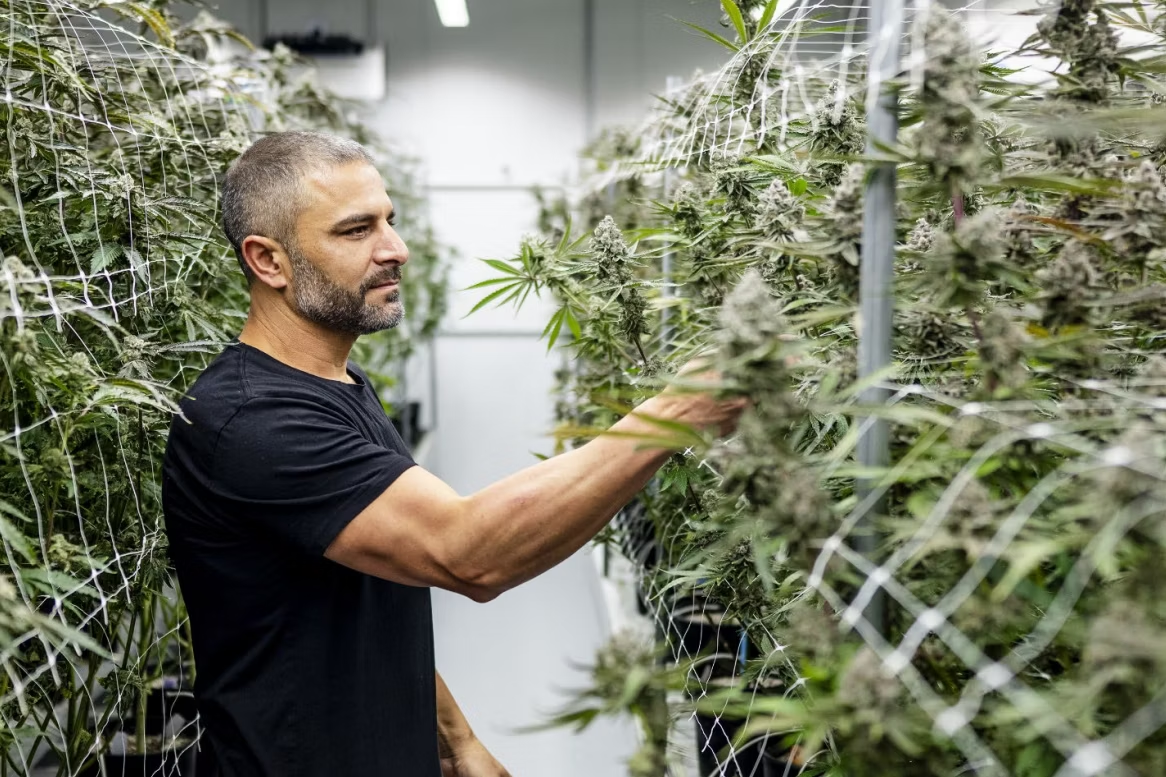A Jersey-based medicinal cannabis producer, Northern Leaf, has reported a remarkable turnaround, tripling its production capacity in less than a year. This surge comes as the company approaches record revenue levels, signaling a possible stabilization of the Island’s cannabis sector following recent challenges.
Chief Executive Steven Tan announced that Northern Leaf increased its production from 25% to 75% of its capacity due to a rising demand for medical cannabis across Europe. Tan stated, “Our order book is full and we’re selling practically everything subject to contract, so it’s really positive.”
Operating from a 100,000 square foot indoor cultivation facility in St Lawrence, Northern Leaf exports 95% of its high-THC medical cannabis to Europe and does not have connections to any medical cannabis clinics in Jersey. Tan joined the company in September to help restructure after it faced financial difficulties, including an unsuccessful attempt to list on the London Stock Exchange and a failed merger with Scottish CBD firm Voyager.
Tan explained, “There was a significant amount of financial resources put into the IPO, and we’ve had to take those debts on. But we made a decision not to let the company go bust.” He acknowledged the support from staff, creditors, and the local community during tough times.
The cannabis industry in Jersey launched in 2019 amid optimism regarding its economic potential. However, early excitement was dampened by practical challenges such as the lack of a robust supply chain and distribution networks, alongside slower-than-expected patient uptake. Tan remarked, “Jersey was a bit too early. It had a first mover disadvantage.”
Now, with new investors from California, Northern Leaf is focusing on responsible growth by paying off existing debts, managing cash flow, and hiring more staff. Tan expressed confidence in the company’s future, stating, “We’re in a much better place. I have no doubt Northern Leaf will be a success story.”
The overall cannabis industry appears to be stabilizing as a solid supply chain develops, particularly in response to an increase in demand for cannabis products in Germany. Tan projects that the sector could generate tens of millions of pounds annually, potentially rivaling the economic value of Jersey’s potato industry, which was valued at £31.6 million in 2017.
Tan highlighted the efficiency of Northern Leaf’s operations, producing comparable value on just 10% of the land area, which previously housed derelict infrastructure. The indoor cultivation process, which utilizes no pesticides, limits its environmental impact relative to other agricultural sectors.
Moreover, the company benefits from a logistical advantage, allowing them to ship products to Germany within 36 hours, compared to the weeks-long delivery times faced by Canadian producers due to customs delays.
Tan also praised the Jersey government’s proactive approach in regulatory matters, noting improved communication regarding permits and industry regulations. He stated, “The government has been very on side. I like the fact that they are more regulatory-driven, which assures the global cannabis industry of our high standards of production and regulation.”
Despite these advances, challenges remain, particularly concerning high energy prices and utility costs, as Northern Leaf is among the top five electricity consumers on the Island. Tan pointed out, “Cannabis requires two main things: people and utilities. The cost of electricity here is higher than in southern Europe. There needs to be a serious conversation about being competitive.”
Tan expressed eagerness to engage with all stakeholders to ensure that the benefits of the cannabis industry extend to the entire Island community.




